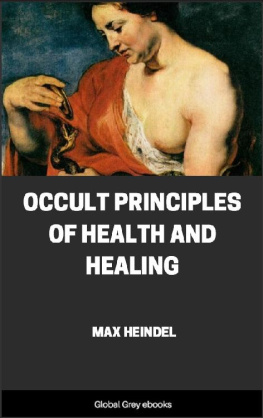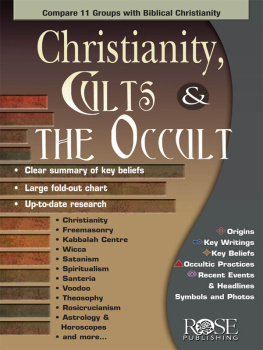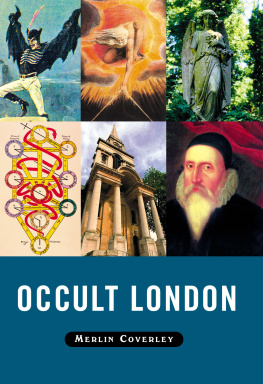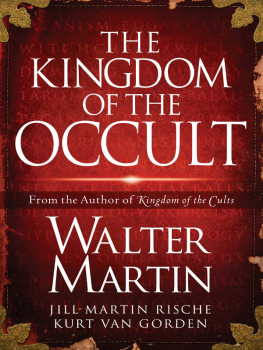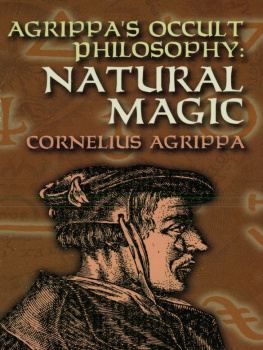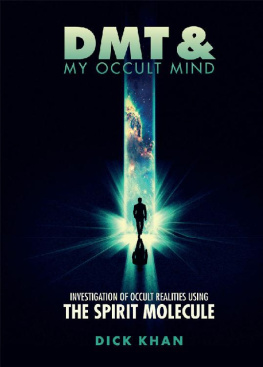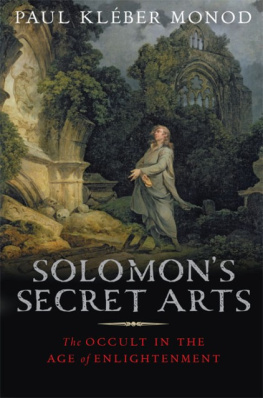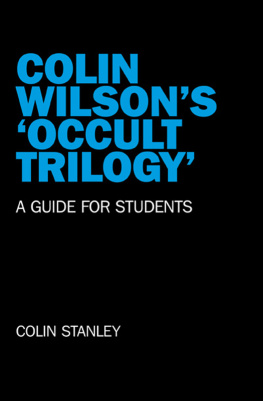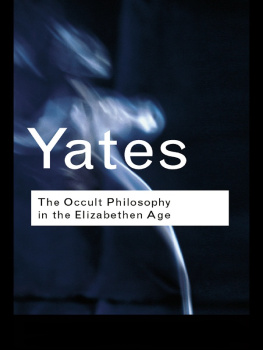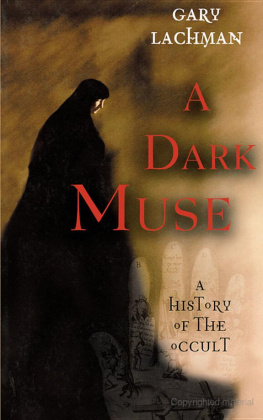Politics & The Occult
Here you can read online Politics & The Occult full text of the book (entire story) in english for free. Download pdf and epub, get meaning, cover and reviews about this ebook. year: 2020, genre: Religion. Description of the work, (preface) as well as reviews are available. Best literature library LitArk.com created for fans of good reading and offers a wide selection of genres:
Romance novel
Science fiction
Adventure
Detective
Science
History
Home and family
Prose
Art
Politics
Computer
Non-fiction
Religion
Business
Children
Humor
Choose a favorite category and find really read worthwhile books. Enjoy immersion in the world of imagination, feel the emotions of the characters or learn something new for yourself, make an fascinating discovery.
Politics & The Occult: summary, description and annotation
We offer to read an annotation, description, summary or preface (depends on what the author of the book "Politics & The Occult" wrote himself). If you haven't found the necessary information about the book — write in the comments, we will try to find it.
Unknown: author's other books
Who wrote Politics & The Occult? Find out the surname, the name of the author of the book and a list of all author's works by series.
Politics & The Occult — read online for free the complete book (whole text) full work
Below is the text of the book, divided by pages. System saving the place of the last page read, allows you to conveniently read the book "Politics & The Occult" online for free, without having to search again every time where you left off. Put a bookmark, and you can go to the page where you finished reading at any time.
Font size:
Interval:
Bookmark:

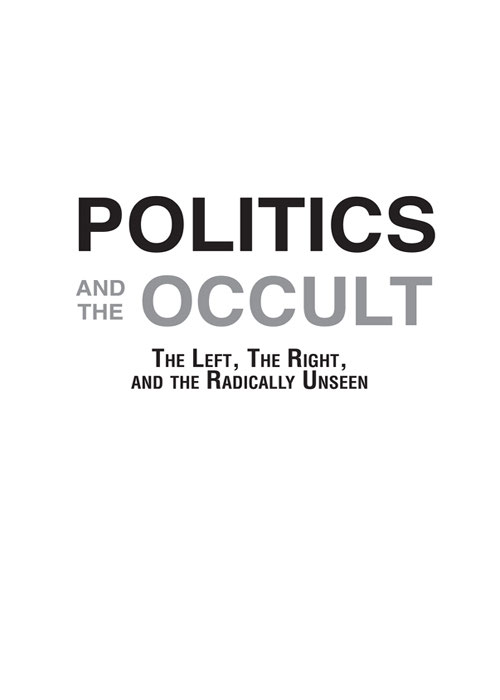
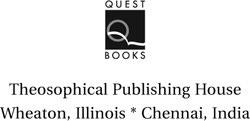
Learn more about Gary Lachman and his work at http://garylachman.co.uk
Find more books like this at www.questbooks.net
Copyright 2008 by Gary Lachman
First Quest Edition 2008
Quest Books
Theosophical Publishing House
P. O. Box 270
Wheaton, IL 60187-0270
Without limiting the rights under copyright reserved above, no part of this publication may be reproduced, stored in or introduced into a retrieval system, or transmitted, in any form, or by any means (electronic, mechanical, photocopying, recording, or otherwise), without the prior written permission of the publisher of this book.
The scanning, uploading, and distribution of this book via the Internet or via any other means without the permission of the publisher is illegal and punishable by law. Please purchase only authorized electronic editions, and do not participate in or encourage electronic piracy of copyrighted materials.
While the author has made every effort to provide accurate telephone numbers and Internet addresses at the time of publication, neither the publisher nor the author assumes any responsibility for errors or for changes that occur after publication. Further, the publisher does not have any control over and does not assume any responsibility for author or third-party websites or their content.
Cover design by Kirsten Hansen Pott
Library of Congress Cataloging-in-Publication Data
Lachman, Gary.
Politics and the occult: the left, the right, and the radically unseen / Gary Lachman.1st. Quest ed.
p. cm.
Includes bibliographical references.
ISBN 978-0-8356-0857-2
1. Occultism. 2. Political science. 3. CivilizationHistory. I. Title.
BF1439.L325 2008
ISBN for electronic edition, e-pub format: 978-0-8356-2032-1
5 4 3 2 1 * 08 09 10 11 12
For James Webb (19461980) and Robert Anton Wilson (19322007), Illuminati supreme
Nothing could be more dangerous for the human race than to believe that its affairs had fallen into the hands of supermen.
Colin Wilson, The Mind Parasites
CONTENTS
| 10 |
| 11 |
ACKNOWLEDGMENTS
Many people helped in making this book possible. I'd like to thank Richard Smoley for approaching me with the idea of doing another book with Quest and for his sympathetic reading of the first draft. Joscelyn Godwin went above and beyond the call of duty in suggesting fruitful areas of inquiry and in passing me on to Marco Passi, who generously shared his forthcoming work on Aleister Crowley with me. Students of occult politics should be thankful that two such incisive thinkers are at work in their fields. Thanks go to Christina Oakley-Harrington for inspiring the book's subtitle, taken from a talk I gave at her wondrous bookshop, Treadwells, here in London. Warm appreciation goes to my old friend John Browner, his wife Lisa Yarger, their daughter Greta, and their pets for making me feel at home in Munich and Ascona, where I researched the SchwabingMonte Verit set. Thanks also to Emilio Alvarez for his thoughtful comments on the Thulegesellschaft and for introducing me to some brown shirt haunts. Many friends, too numerous to mention adequately, deserve thanks for enduring my obsessive pursuit of these dark matters; I trust their tolerance continues. Special appreciation goes to Andy Zax for enabling me to continue work on the book in style while in Los Angeles; thanks go to my great friend Lisa Persky, too, for the use of her laptop while there: may they both enjoy the rich happiness they deserve. Maja d'Joust of the Philosophical Research Society in Los Angeles kindly opened its doors when I visited on a day it was closed. Thanks also go to my old alma mater, the Bodhi Tree Bookstore, who opened its doors for a talk I gave on related themes. Adam Simon's insights into the religious Right were profitable, if chilling. Christopher McIntosh's remarks on the Rosicrucians, made at a talk at the Theosophical Society in London, were, it goes without saying, helpful, and I was glad to renew our acquaintance, first made ages ago at the Rosicrucian Conference in Czesky Krumlov in the Czech Republic. My sons, Joshua and Maximilian, remain inexhaustible wells of inspiration, and I'd like to thank their mother, Ruth Jones, for our many constructive and rewarding Caff Nero conferences. We'll always have Domodossala.
Introduction
HIDDEN SUPERIORS AND THE RETREAT FROM THE MODERN WORLD
I first became interested in the relationship between politics and the occult through reading a remarkable book published in the 1970s by the occult historian James Webb. In The Occult Establishment , Webb, who is generally skeptical of most occult claims, argues that at the turn of the nineteenth century, and especially after World War I, a variety of social pressures produced in Europe and America what he called a flight from reason, leading to an embrace of the irrational and a rejection of the modern world. For Webb, the occult revival of the late nineteenth century, which produced such significant movements as the Theosophical Society, the Hermetic Order of the Golden Dawn, and Rudolf Steiner's anthroposophy, was in fact a reaction to the shifts in society brought about by the rise of modernity. This in turn led to what he calls illuminated politics, a politics that has a religious complexion and obeys a transcendental scale of valuesilluminated taken, perhaps, from the infamous Bavarian Illuminati.
To many at that time, the secular, materialist world rooted in science, rationalism, and economics seemed bent on destroying age-old traditions that had hitherto given life and society a secure meaning. Religion was on the way out, and the rise of industrialism and an increasingly rapid technological progress, which continue today, were bringing about sudden social changes. The move to cities, the loss of contact with nature, the disintegration of the family, the loosening of the organic ties that had previously bonded individuals into a community: these were the elements of a strange, new world. The confusion and dismay accompanying these transformations is perhaps best expressed in Karl Marx's remark that in the modern world, all that is solid melts into air. Marx's analogy gives the impression of a dizzying social free fall, but the sociologist Max Weber voiced an equally distressing concern in a radically different metaphor, calling the modern world an iron cage of rules and regulations that casts its lonely inhabitants into a polar night of icy darkness.
We may regard these and other gripes against the modern world, from William Blake's satanic mills to the liquid modernity of the contemporary social philosopher Zygmunt Bauman, as the whining of misfits unable to get with the program. But it is difficult to ignore the philosopher Leszek Kolakowski's remark that today it seems as though we live with the feeling of an all-encompassing crisis without being able, however, to identify its causes clearly. Kolakowski is right, I think, and this is the modern condition.
As someone who believes that interest in the occult, the esoteric, the metaphysical, and the spiritual is not necessarily prompted by anxiety, a crisis of identity, or weakness of mind, I took Webb's thesis with a few grains of salt, which nevertheless didn't prevent me from appreciating the remarkable amount of research he had put into his book, or the slightly wry humor with which he presented his evidence. I had enjoyed very much Webb's The Harmonious Circle , a near-exhaustive study of Gurdjieff, Ouspensky, and their followers, although having been involved for a time with the Gurdjieff work, I once again had my doubts about his conclusions. Webb seems to have had his own doubts about his skeptical rationalism, and although we may never know for certain, those cracks in his rational armor may have had something to do with the mental unbalance that led to his suicide in 1980 at the age of thirty-four. In many ways this present book is written in return for the profit and enjoyment I received from reading Webb's work.
Font size:
Interval:
Bookmark:
Similar books «Politics & The Occult»
Look at similar books to Politics & The Occult. We have selected literature similar in name and meaning in the hope of providing readers with more options to find new, interesting, not yet read works.
Discussion, reviews of the book Politics & The Occult and just readers' own opinions. Leave your comments, write what you think about the work, its meaning or the main characters. Specify what exactly you liked and what you didn't like, and why you think so.


